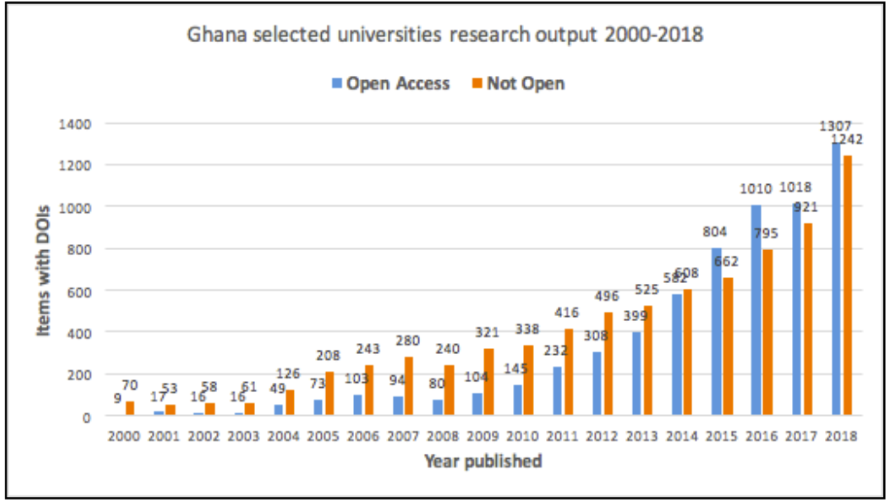
Spotlight on an invisible continent
While many universities across Africa have grown their research productivity over the past 20 years, the scale of and impact of their outputs are not recognised by world university rankings.
South Africa and Egypt dominate research outputs from Africa, with research output also growing significantly in Tunisia, Nigeria, Morocco and Algeria.
However, according to Curtin Open Knowledge Initiative (COKI) Project Research Fellow Dr Katie Wilson, some analyses and University rankings such as the Times Higher Education Africa Rankings rely solely on publication citation data and research productivity data from the Scopus or Web of Science publication databases – failing to consider a huge volume of research being published in sources not covered by those databases.
Open access and research dissemination in Africa, a paper presented at ELPUB 2020, the 24th International Conference on Electronic Publishing, by members of the COKI group and collaborators from Ghana, Rwanda and South Africa, analyses research published by African researchers from multiple database sources.
“This paper shines a light on the tremendous productivity and research capability in many institutions in Africa,” Dr Wilson said.
“Over the past 20 years, higher education systems in wealthier countries have embraced narrow rankings systems which purport to evaluate and recognise global excellence but in fact exclude many of the discoveries and insights of universities in countries in the Global South.
“Open access can reduce publication costs, so universities from less wealthy countries frequently rely on open access publications to disseminate their research findings and data. Open access also enables universities to share research outcomes with their communities, so they don’t have to pay to access expensive journals in order to use the knowledge created by their local universities.”
To understand open access performance, COKI analyses institutional research output with DOIs from bibliographic databases Microsoft Academic, Scopus and the Web of Science.
The paper indicated there had been a massive increase in research productivity in Ghana since 2000, with the majority of papers published as open access. The majority were Gold (42% of open access papers published in 2018), followed by Green (archived in repositories); highlighting the impact of national policies and the establishment of institutional repositories.

- (data sources: Microsoft Academic, Scopus, Web of Science Analysis and image, COKI October 2019)
“The establishment of policies and infrastructure to facilitate publication sharing have increased significantly the rates of open access publication,” Dr Wilson said.
“Open access publications also form a significant proportion of the output of countries such as Rwanda, Uganda and South Africa.
“Recognising the diversity and productivity of African universities is an important step towards a better understanding of global higher education research.
“If we shed the colonial lens of current rankings systems, which do not include institutional commitment to open access, then we can get a realistic picture of university productivity.
“This becomes really important when it comes to tackling complex global issues of the future. Global scientific collaboration to fight COVID-19 has been very successful – in part because researchers, and some publishers, have shared their discoveries through open access.
“Our analysis shows there is a whole continent of researchers in Africa who are too often invisible to universities in countries in the Global North – people with ideas and capabilities that could be vital to help the world tackle the next crisis that emerges.
“This paper and the work of the COKI project is a small step forward in redressing the perceptions of equity and inclusion in the global higher education system.”
